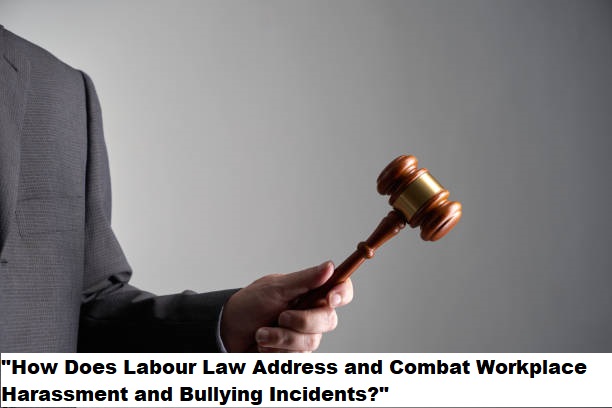introduction:
In this article, we will explore the robust protections that labor law affords whistleblowers within the workplace environment. Whistleblowers play a crucial role in exposing misconduct and ensuring accountability. Labor laws aim to safeguard these individuals, providing a framework that encourages reporting without fear of reprisal. Let's delve into six key outlines, shedding light on the comprehensive protections established by labor law for whistleblowers.
1. **Legal Definition: Clearly define whistleblowing and protected disclosures legally.
2. **Confidential Reporting: Establish mechanisms for confidential reporting of workplace concerns.
3. **Non-Retaliation Measures: Outline strong protections against retaliation for whistleblowers.
4. **Anonymous Reporting: Facilitate anonymous reporting channels to protect whistleblowers' identity.
5. **Investigation Protocols: Develop fair and thorough investigation procedures for whistleblowing claims.
6. **Legal Remedies: Specify legal remedies for whistleblowers facing retaliation or harm.
1. Legal Definition: Clearly define whistleblowing and protected disclosures legally.
Labor laws begin by offering a precise legal definition of whistleblowing, emphasizing the protected nature of certain disclosures. Whistleblowing is typically defined as the act of an employee reporting, in good faith, any suspected wrongdoing or illegal activities within the organization. The legal framework establishes the scope of protected disclosures, ensuring that whistleblowers are shielded when reporting issues that fall within defined parameters, such as violations of laws, regulations, or ethical standards.
2. Confidential Reporting: Establish mechanisms for confidential reporting of workplace concerns.
Confidential reporting mechanisms are a cornerstone of whistleblower protection under labor laws. These mechanisms allow employees to report concerns without fear of reprisal or disclosure of their identity. The framework encourages open communication, ensuring that whistleblowers feel secure in reporting any wrongdoing or misconduct. Labor laws mandate that organizations establish and maintain effective channels for confidential reporting, fostering a culture where employees can raise concerns without compromising their privacy or job security.
3. Non-Retaliation Measures: Outline strong protections against retaliation for whistleblowers.
Labor laws unequivocally emphasize the need for robust protections against retaliation for whistleblowers. Employees who report misconduct or violations are legally shielded from adverse actions, ensuring they do not face discrimination, harassment, or wrongful termination as a result of their disclosures. Non-retaliation measures are a fundamental aspect of whistleblower protection, reinforcing the commitment to creating an environment where employees feel empowered to speak up without fear of reprisal.
4. Anonymous Reporting: Facilitate anonymous reporting channels to protect whistleblowers' identity.
Anonymous reporting channels are integral to protecting whistleblowers' identities. Labor laws stress the importance of providing avenues for employees to make anonymous disclosures, further enhancing their confidence in reporting wrongdoing. These mechanisms enable individuals to contribute information without revealing their identity, minimizing the risk of retaliation and ensuring a secure environment for whistleblowers to come forward with concerns.
5. Investigation Protocols: Develop fair and thorough investigation procedures for whistleblowing claims.
Fair and thorough investigation protocols are outlined by labor laws to ensure that whistleblowing claims are handled with diligence and impartiality. Organizations must establish clear procedures for investigating disclosures, addressing concerns promptly, and protecting the rights of both whistleblowers and those accused of wrongdoing. Transparent investigation protocols contribute to a culture of accountability, demonstrating a commitment to addressing concerns while upholding due process.
6. Legal Remedies: Specify legal remedies for whistleblowers facing retaliation or harm.
Labor laws prescribe legal remedies for whistleblowers who face retaliation or harm as a result of their disclosures. These remedies may include reinstatement, compensation for damages, or other measures to rectify the adverse effects of retaliation. By providing explicit legal recourse, labor laws send a strong message that any attempt to undermine or harm whistleblowers will be met with serious consequences, further reinforcing the importance of whistleblower protection.
Topic: "Which Robust Protections Does Labour Law Provide for Whistleblowers in the Workplace Environment?"
Robust protections for whistleblowers within the workplace environment are a cornerstone of labor law, designed to encourage transparency, accountability, and ethical conduct. The outlined measures, derived from labor law principles, collectively create a comprehensive framework for safeguarding whistleblowers.
Labor laws initiate the protection by offering a clear legal definition of whistleblowing and delineating the scope of protected disclosures. Confidential reporting mechanisms, mandated by labor laws, establish secure channels for employees to report concerns without fear of exposure, fostering an environment where openness is valued.
Non-retaliation measures, a core element of whistleblower protection, ensure that individuals reporting wrongdoing are shielded from adverse actions. Anonymous reporting channels further enhance protection by allowing whistleblowers to maintain their identity confidentially, minimizing the risk of retaliation.
Fair and thorough investigation protocols, guided by labor laws, underscore the commitment to addressing whistleblowing claims with diligence and impartiality. Legal remedies, specified by labor laws, serve as a deterrent against retaliation, providing whistleblowers with recourse in the face of harm.
Conclusion:
In conclusion, labor laws offer robust protections for whistleblowers in the workplace environment, acknowledging the critical role they play in upholding ethical standards and accountability. The legal definition, confidentiality, non-retaliation measures, anonymous reporting, investigation protocols, and legal remedies collectively contribute to a framework that encourages whistleblowers to come forward without fear of reprisal. I hope organizations recognize the significance of aligning their practices with these protections, creating environments where ethical concerns can be addressed transparently, ultimately fostering trust and integrity within the workplace.












0 Comments